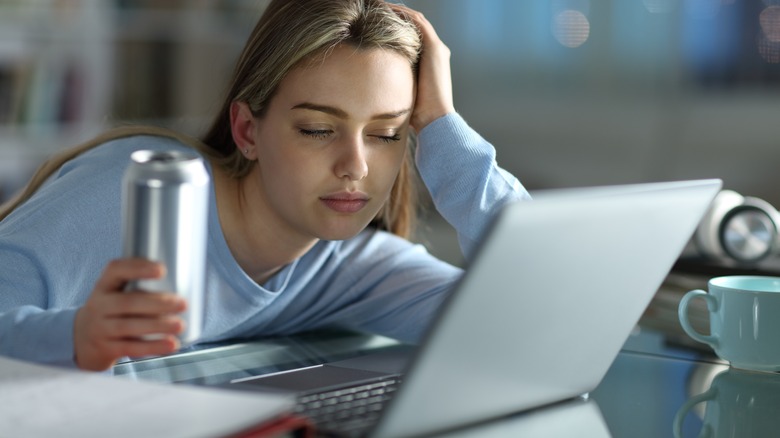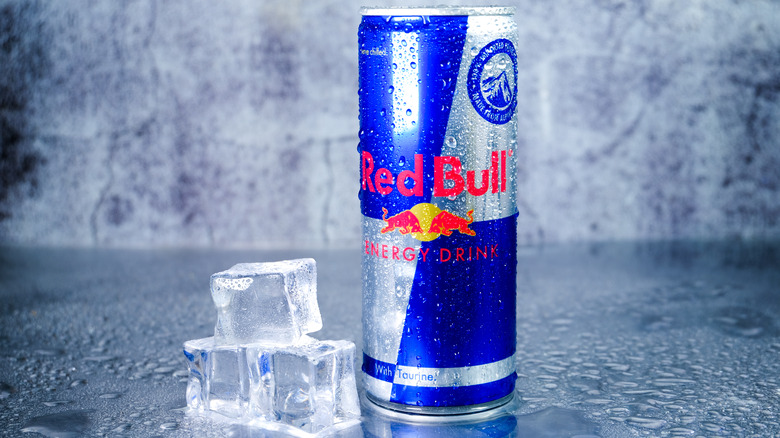How Energy Drinks Can Affect Your Sleep Quality
Whether you're a college student who pulled an all-nighter studying for an exam or an adult heading to work after struggling with insomnia the night before, some nights we don't get the recommended amount of sleep for our age range. If you're tired, you might need a pick-me-up to get through the day, which is often obtained through the consumption of caffeine. On an early morning, you may notice long lines at your local Starbucks and Dunkin' Donuts, illustrating how many people start their day by drinking caffeinated beverages. In fact, the Centers for Disease Control and Prevention (CDC) reports that approximately 80% of American adults consume caffeine on a daily basis, making the stimulant extremely popular.
One popular caffeinated beverage is the energy drink. Some brands that you may have tried in your lifetime are Red Bull, Monster, and Bang Energy. According to a 2010 article published in Mayo Clinic Proceedings, energy drinks typically contain between 70 and 200 mg of caffeine in one 16-oz serving. In addition to bringing energy, caffeine is thought to raise a person's heart rate and blood pressure.
Although caffeine is a main ingredient in energy drinks, it's far from the only one. The 2010 article explains that energy drinks also contain ingredients like taurine, B vitamins, guarana, ginseng, as well as sugar, all aiming to boost your energy. Although energy drinks may seem to help you stay awake, how does consuming them during the day impact your quality of sleep at nighttime?
The link between energy drink consumption and sleep quality
Though energy drinks may seem harmless, it turns out that consuming them may come with some adverse effects. There are different issues that can arise, including problems related to sleep, warns the CDC.
A 2019 study published in Sleep Disorders reported that the effects of energy drinks can last up to 8 hours and may interfere with an individual's sleep quality. They also note that these sleep disturbances could be detrimental to a student's performance at school since research suggests that insufficient sleep has negative effects on the cognitive functions of learning and memory. The results of their study on Zambian university students corroborated with prior research, and they found that poor sleep quality was related to the consumption of energy drinks.
College students are not the only ones who can be impacted by the negative effects of energy drinks. According to another 2019 study published in the Western Journal of Nursing Research, it's also common for workers in healthcare professions to turn to the caffeinated beverage for a quick boost of energy. In the study, the researchers found that the nurses who consumed energy drinks reported a significant decrease in sleep hours and lower quality sleep than the other groups of participants. Interestingly, they also noted that participants who consumed energy drinks regularly perceived an increase in stress levels compared to the participants who did not consume caffeine.


